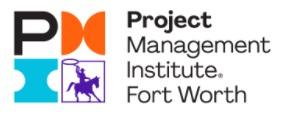The Role of Agile Methodologies in Modern Project Management
Author: Latha Thamma Reddi, PMP
Introduction:
The significant role of Agile methodologies in modern project management. As traditional project management approaches face challenges in meeting the dynamic demands of today's fast-paced business landscape, Agile methodologies have emerged as a powerful alternative. We will learn an in-depth analysis of Agile principles, practices, and frameworks, highlighting their benefits and impact on project management efficiency and success. The adoption and implementation of Agile methodologies, addressing potential challenges and offering recommendations for effective integration into project management practices. Furthermore, it explores the relationship between Agile methodologies and key project management factors such as stakeholder engagement, risk management, and team collaboration. This article concludes with insights into future trends and opportunities for further research in this evolving field.
.png)
The evolution of project management seems to have mirrored the evolution in general management, starting with a focus on ‘scientific’ (or hard) processes in the early years, moving to a soft skills focus in the 21st century. This trend is clearly demonstrated by analysis of papers published in the International Journal of Project Management which shows a drop from 49% to 12% for task focused papers (scheduling, etc), offset by increases in papers on ‘soft’ subjects such as leadership and stakeholder management. Similarly, many of the new ‘tools’ entering the market in the 21st century are directed towards collaboration, communication and stakeholder management including the innovative Stakeholder Circle system.
In the fast-paced world of modern business, keeping up with the ever-changing landscape is crucial for organizations aiming to remain competitive and meet the demands of their customers. To achieve this, digital transformation has emerged as a vital endeavor. Central to the success of digital transformations is the adoption of Agile methodology. This flexible and collaborative approach empowers teams to effectively respond to evolving requirements and deliver value quickly.
.png)
The Agile "Manifesto" was collectively written by a group of seventeen software development practitioners who met in February 2001 at The Lodge at Snowbird ski resort in Utah, United States. This group, known as the Agile Alliance, consisted of prominent figures in the software industry, including Kent Beck, Mike Beedle, Arie van Bennekum, Alistair Cockburn, Ward Cunningham, Martin Fowler, James Grenning, Jim Highsmith, Andrew Hunt, Ron Jeffries, Jon Kern, Brian Marick, Robert C. Martin, Steve Mellor, Ken Schwaber, Jeff Sutherland, and Dave Thomas. Together, they collaborated and crafted the Agile "Manifesto" as a guiding set of principles for software development that prioritizes iterative and adaptive approaches, customer collaboration, and responding to change.
Creating the Profession of ‘Modern Project Management’
Best Practices for Agile-driven Digital Transformation
From building a strong Agile team to establishing a culture of collaboration and continuous improvement, let’s delve into the key strategies for success.
Building a strong Agile team is crucial for the success of digital transformation initiatives. Start by defining clear roles and responsibilities within the team, ensuring that everyone understands their contribution to the project. Look for individuals with diverse skill sets, including technical expertise, domain knowledge, and strong communication skills. Emphasize the importance of collaboration and encourage cross-functional teams to foster synergy and innovation.
To drive an Agile-driven digital transformation, it’s essential to establish a culture that embraces collaboration, flexibility, and continuous improvement. Encourage open communication, knowledge sharing, and transparency within the team and across the organization. Embrace a growth mindset that embraces experimentation, risk-taking, and learning from failures. Celebrate successes, recognize achievements, and provide a safe environment for individuals to voice their ideas and concerns.
In Agile, the backlog serves as a prioritized list of work items. It’s essential to prioritize and manage the Agile backlog effectively to ensure that the most valuable features and deliverables are addressed first.
Regularly engage with stakeholders, gather feedback, and refine the backlog based on changing requirements. Tools like “JIRA Software” and “Trello” can aid in backlog management, making it easier to visualize, prioritize, and track progress.
Agile project governance and stakeholder engagement play a crucial role in achieving successful outcomes. Establish a governance framework that provides clear guidelines, ensures accountability, and enables effective decision-making. Engage stakeholders throughout the digital transformation journey, involving them in the planning, review, and feedback cycles. Regularly communicate project progress, address concerns, and align expectations to maintain stakeholder support.
By implementing these best practices, Agile practitioners can pave the way for successful digital transformations. In the next section, we will dive into real-life case studies of organizations that have leveraged Agile methodologies to achieve remarkable results. Get ready to be inspired and learn from their experiences!
The Four Agile Values:
These four values are advocated in the Agile “Manifesto” and form the core of Agile methodology. Let’s analyze them in detail:
Individuals and interactions over processes and tools:
In the context of Agile software development, this value emphasizes the importance of prioritizing human collaboration and effective communication within a project team. It encourages valuing the expertise, creativity, and contributions of team members over rigid processes and tools. Agile methodologies promote teamwork, active collaboration, and open communication channels to foster innovation, problem-solving, and adaptability.
Working software over comprehensive documentation:
This value highlights the significance of delivering functional and valuable software over extensive documentation. Agile methodologies emphasize the iterative development of working software in short iterations or sprints, ensuring regular and tangible outputs for stakeholders. While documentation is still important in Agile, the emphasis is on creating just enough documentation to support the development and understanding of the software without excessive bureaucracy.
Customer collaboration over contract negotiation:
Agile places a strong emphasis on actively involving the customer or end-user throughout the software development process. This value emphasizes the need for continuous collaboration and feedback from customers to ensure that the software meets their evolving needs. Agile methodologies promote close interaction, regular demos, and customer involvement in the development process, allowing for early feedback and the ability to adapt the product based on customer input.
Responding to change over following a plan:
Agile embraces change and recognizes that requirements and priorities can evolve throughout a project's lifecycle. This value encourages adaptability and flexibility in response to changing customer needs or market dynamics. Agile methodologies promote iterative planning and continuous feedback loops, allowing for adjustments and reprioritization based on new insights and changing circumstances.
Agile teams aim to be responsive, enabling them to deliver maximum value even as requirements evolve.
While the Agile values are primarily focused on software development, it's important to note that their application may vary in different contexts, such as data science. While certain aspects of Agile may not directly align with the specific characteristics of data science, the underlying principles of collaboration, flexibility, and responsiveness can still be valuable in promoting effective teamwork, adaptability, and customer-centricity within the data science domain.
Agile project plans prioritize complete transparency, ensuring that all stakeholders have clear visibility into the project's progress and timelines. It is essential to recognize that project success is not solely reliant on the agency's capacity to deliver outcomes; clients also play a crucial role in providing feedback and information necessary for moving the project forward to the next stage.
To maintain realistic timelines, project plans should be openly shared with clients, fostering transparency and trust. This transparency serves multiple purposes: assuring clients of the agency's productivity levels, demonstrating that project outcomes are being met, and following a well-calculated approach. Additionally, transparent project plans help prevent the omission of key elements that could significantly impact the success or failure of the project. By involving clients in the process and keeping them informed, both agencies and clients can work together to achieve the desired results.
As organizations undergo continuous evolution, future project managers will face corresponding challenges. With the emergence of large and complex projects, it has become essential for project managers to coordinate diverse knowledge disciplines. To accomplish their tasks effectively, project managers will need to adapt to new technologies and determine which specialized tools are best suited for each project. Filtering through abundant data and capturing the right information will pose another challenge as project managers navigate an overwhelming sea of information.
Understanding the big picture and effectively communicating with others will be crucial for future project managers, particularly as they collaborate with individuals from different countries, cultures, and networks. Moreover, project managers must adapt to changing workforce demographics, including the retirement of baby boomers, shifts in immigration flows, and the influx of young professionals entering the workforce. The retirement of baby boomers may result in talent scarcity for vacant positions, granting skilled employees more bargaining power.
Furthermore, project managers will need to adjust to evolving organizational structures influenced by factors like globalization, limited resources, stakeholders, competition, and economics. Amidst these transformations, one thing remains certain: project managers of the twenty-first century must embrace adaptability to thrive in a landscape characterized by constant change, uncertainty, and disruptions.
Key Takeaways and Lessons Learned:
These real-life case studies highlight several key takeaways and lessons for Agile practitioners:
A. Agile enables customer-centricity and iterative development, leading to improved customer experiences.
B. Embracing Agile fosters innovation, empowers teams, and accelerates speed-to-market.
C. Agile practices help organizations overcome challenges and navigate complexities in digital transformations.
D. Collaboration, transparency, and continuous improvement are essential elements of Agile success.




